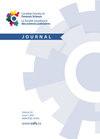COVID-19 and the courtroom: exploring the effects of camera angle on jury perception of expert witness credibility during virtual testimony
IF 0.5
Q4 MEDICINE, LEGAL
Canadian Society of Forensic Science Journal
Pub Date : 2022-07-26
DOI:10.1080/00085030.2022.2098610
引用次数: 0
Abstract
Abstract Since the onset of COVID-19, expert witness testimony has been delivered virtually in judge-alone trials in Ontario with increasing frequency. It is unknown how controllable technological factors in the virtual environment – such as camera angle – may influence jury perception of expert witness credibility. This study assesses whether camera angle has a significant effect on juror perception of expert witness credibility. Jury-eligible participants from Ontario (n = 72) acted as mock jurors in four mock drug trafficking trials involving the same virtual forensic toxicology testimony. The control group (n = 34) watched an expert who was shown from the mid-chest up, whereas the experimental group (n = 38) watched an expert who had their camera angle set to show only their head. Using the Witness Credibility Scale (WCS), participants assessed expert credibility by completing 20 Likert-scale questions related to the expert’s knowledge, likeability, trustworthiness, and confidence. A Mann-Whitney U test indicated no significant difference between the control and experimental groups (p = 0.66, p > 0.05). Therefore, camera angle has no significant impact on juror perception of expert witness credibility, suggesting that experts can use either angle when testifying virtually. This research may help to inform future best practices for virtual expert testimony, enhancing quality and standardization.COVID-19与法庭:探讨虚拟证词中摄像机角度对陪审团对专家证人可信度感知的影响
自2019冠状病毒病(COVID-19)爆发以来,安大略省几乎在法官单独审判中提供专家证人证词的频率越来越高。目前尚不清楚虚拟环境中的可控技术因素(如摄像机角度)如何影响陪审团对专家证人可信度的看法。本研究评估了镜头角度是否对陪审员对专家证人可信度的认知有显著影响。来自安大略省的符合陪审员资格的参与者(n = 72)在涉及相同虚拟法医毒理学证词的四个模拟贩毒审判中担任模拟陪审员。对照组(n = 34)观看了一位专家胸部中部以上的镜头,而实验组(n = 38)观看了一位专家的镜头角度只显示头部的镜头。使用证人可信度量表(WCS),参与者通过完成20个李克特量表问题来评估专家的可信度,这些问题与专家的知识、受欢迎程度、可信度和信心有关。Mann-Whitney U检验显示对照组与实验组之间无显著差异(p = 0.66, p > 0.05)。因此,镜头角度对陪审员对专家证人可信度的感知没有显著影响,这表明专家在虚拟作证时可以选择任意一个角度。这项研究可能有助于为未来虚拟专家证词的最佳实践提供信息,提高质量和标准化。
本文章由计算机程序翻译,如有差异,请以英文原文为准。
求助全文
约1分钟内获得全文
求助全文

 求助内容:
求助内容: 应助结果提醒方式:
应助结果提醒方式:


